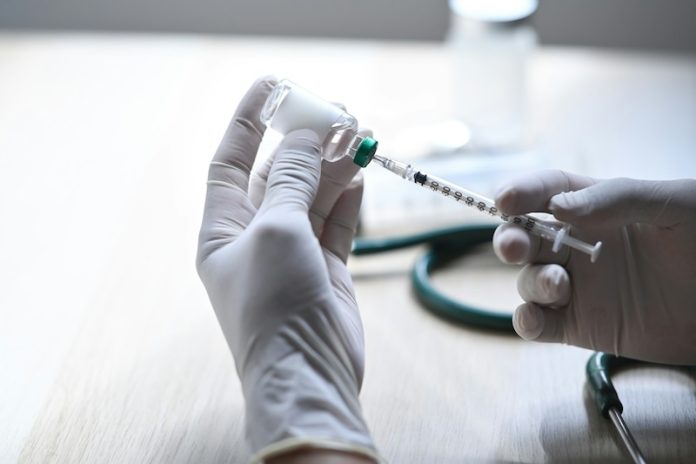
Researchers from Ludwig Cancer Research have developed an advanced tool that could pave the way for highly personalized cancer vaccines. This innovative system, called NeoDisc, combines molecular and genetic analysis with artificial intelligence (AI) to identify the best targets for cancer immunotherapy.
This breakthrough was detailed in a recent study published in Nature Biotechnology and led by Florian Huber and Michal Bassani-Sternberg from the Lausanne branch of the Ludwig Institute for Cancer Research.
NeoDisc is designed to analyze the unique characteristics of a patient’s tumor and the immune system’s response to it. This information is used to create personalized vaccines that train the immune system to better recognize and attack cancer cells.
The system represents a new approach to cancer treatment, as it integrates multiple forms of data to produce a more tailored and precise therapeutic option.
“NeoDisc provides deep insights into how tumors interact with the immune system, especially how they avoid being attacked by T cells, which are part of the body’s immune defense,” explained Bassani-Sternberg.
This detailed knowledge is crucial for developing personalized cancer immunotherapies, which are already being tested in clinical trials at the Lausanne center.
Cancer cells often carry mutations that make them stand out from healthy cells, which should theoretically make them easier for the immune system to recognize and destroy.
These mutations produce abnormal proteins, or “neoantigens,” which get chopped into small pieces by the cancer cells and displayed on their surface, inviting T cells to attack.
However, not all neoantigens are equally effective in triggering a strong immune response. The variation in these neoantigens is one reason why patients respond differently to immunotherapies.
Personalized immunotherapy aims to identify the most promising neoantigens for each patient, which is no easy task. This process involves large-scale analysis of genetic mutations, how these mutations are presented to T cells, and whether they are recognized by the T cell receptors.
NeoDisc is the first tool to integrate all these analyses into one system, making the process of creating personalized vaccines much more efficient.
In addition to identifying neoantigens, NeoDisc can detect other antigens that arise from cancer cells expressing proteins they shouldn’t, such as those from non-coding DNA or proteins usually produced only during early development.
By using machine learning, NeoDisc can rank these antigens and select the ones most likely to trigger a strong immune response, which can then be incorporated into personalized vaccines.
Another important feature of NeoDisc is its ability to detect defects in the machinery that presents these antigens to T cells. Tumors sometimes evade the immune system by preventing this process, making it harder for T cells to recognize and attack them.
NeoDisc can alert doctors to these issues, allowing them to refine treatment plans or select patients more likely to benefit from certain therapies.
What makes NeoDisc stand out is its ability to outperform other tools currently used to select antigens for cancer vaccines and cell therapies.
The researchers demonstrated that NeoDisc’s predictions are more accurate, increasing the chances that the selected antigens will elicit a strong immune response.
To improve NeoDisc even further, the team plans to continue refining the tool by feeding it more data from various types of tumors.
They will also integrate more advanced machine learning algorithms, aiming to enhance its ability to predict the best targets for immunotherapy.
This new tool could be a game-changer for personalized cancer treatment, offering a more precise way to design therapies that harness the power of the immune system.
By tailoring vaccines to the specific characteristics of each patient’s tumor, NeoDisc has the potential to significantly improve outcomes for people battling cancer.
If you care about cancer, please read studies that low-carb diet could increase overall cancer risk, and new way to increase the longevity of cancer survivors.
For more information about cancer, please see recent studies about how to fight cancer with these anti-cancer superfoods, and results showing daily vitamin D3 supplementation may reduce cancer death risk.
The research findings can be found in Nature Biotechnology.
Copyright © 2024 Knowridge Science Report. All rights reserved.



